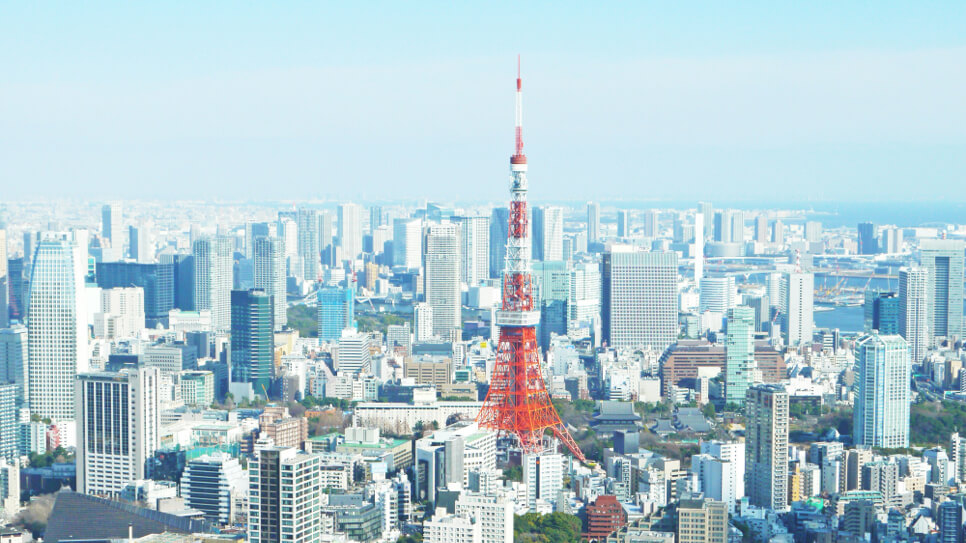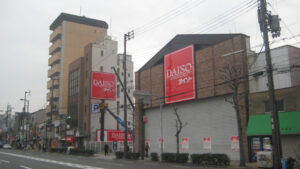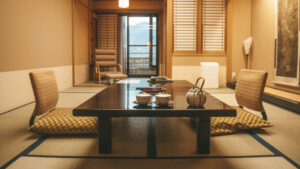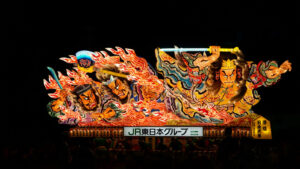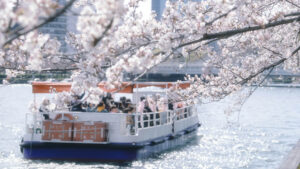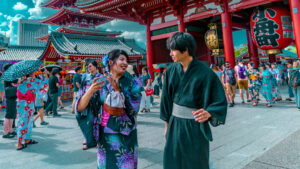For travelers who seek more than just a place to stay, Japan’s historic hotels offer a truly enriching experience. These time-honored establishments, which have hosted emperors and renowned figures over the years, continue to preserve Japan’s refined hospitality, aesthetic sensibility, and cultural heritage.
From century-old ryokan nestled in peaceful gardens to historic architecture infused with artisanal craftsmanship, each stay promises comfort and authenticity through exceptional service and cuisine.
In this article, we introduce a selection of Japan’s most distinguished heritage hotels where you can experience the essence of Japanese culture.
Contents
What Is a Historic Hotel? Discovering Japan’s Traditional Hospitality Culture
Japan is home to many historic hotels that have nurtured a unique spirit of hospitality over generations. These accommodations offer more than just a place to stay—they invite guests to experience the history, aesthetic, and refined traditions of the region. In recent years, they have gained attention among both domestic and international travelers seeking authentic cultural stays.
The Definition and Allure of Historic Hotels
A historic hotel in Japan is not simply old; it embodies values passed down through time. These establishments are recognized for their long-standing reputation, impeccable service, and a sense of continuity that offers guests comfort and a deeply memorable stay.
Over 100 Years of History
Many of Japan’s historic hotels have been in operation for more than a century. Having withstood dramatic historical changes through the Meiji, Taisho, and Showa eras, these hotels reflect a deep connection to their local communities and a legacy of family pride. The very atmosphere becomes part of the journey for each guest.
Accommodations for Royalty and Notables
Numerous historic hotels have hosted members of the imperial family, international dignitaries, and celebrated artists or writers. Their choice of these hotels speaks to the quality, privacy, and serene atmosphere these properties provide. Staying in such a place offers a rare opportunity to connect with that rich legacy.
Timeless Architecture and Interior Design
From traditional sukiya-style architecture to early modern Japanese and Art Deco designs, the buildings themselves often hold cultural and aesthetic significance. Carefully preserved woodwork, sliding paper doors, and period furnishings reflect the craftsmanship and design sensibility that define Japanese beauty.
How Are Historic Hotels Different? A Comparison with Modern Accommodations
While both historic and modern hotels in Japan offer comfort and hospitality, their underlying philosophies, spatial design, and service styles can differ greatly. Historic hotels are defined by the uniquely Japanese spirit of “omotenashi,” or heartfelt hospitality, which is reflected in even the smallest details and has been refined over generations.
Service Style: The Spirit of Omotenashi
One of the defining characteristics of historic hotels is their attentive and anticipatory approach to service—delivering thoughtful hospitality before a guest even makes a request. Rather than overly assertive or mechanical service, these hotels provide a calm, sincere manner that leaves a lasting impression. Unlike the efficiency-focused service found in many modern hotels, the personal touch and genuine warmth here elevate the overall experience into something truly memorable.
Attention to Detail in Cuisine and Services
In the culinary offerings of historic hotels, meticulous attention is given to seasonal ingredients, elegant presentation, and the selection of serving ware. This is especially evident in traditional Japanese meals, which are crafted to reflect the beauty of nature’s changing seasons—engaging all five senses. Beyond the meals, the commitment to care extends to cleanliness, interior upkeep, and guest guidance, all delivered with sincerity and refinement developed through years of dedication.
Historic Hotels in Tokyo
Tokyo is home to a number of long-established hotels that have welcomed both domestic and international guests for decades. These hotels are renowned for their elegant architecture, time-honored service, and one-of-a-kind atmospheres. In this section, we introduce some of Tokyo’s most iconic historic hotels, along with the years they were founded.
Imperial Hotel Tokyo (Founded in 1890)
A Prestigious Legacy: Japan’s Iconic Historic Hotel
The Imperial Hotel was established in the Meiji era to accommodate foreign dignitaries, and it remains one of Japan’s most iconic and prestigious hotels. Once home to a main building designed by renowned architect Frank Lloyd Wright, the hotel continues to be a symbol of refined elegance and traditional Japanese hospitality. It has long been a favorite among both domestic and international guests.
Elegant Rooms and Thoughtful Service
Conveniently located just a 4-minute walk from Hibiya Station and 3 km from the Imperial Palace, the hotel offers serene and sophisticated guest rooms. Each room is equipped with free Wi-Fi, a flat-screen TV, a mini-fridge, and tea-making amenities. Upgraded rooms include a sitting area with a sofa, while suites feature separate living spaces. Guests can enjoy 24-hour room service and in-room massage treatments. Children under 4 stay free when accompanied by an adult.
Diverse Dining and a Beloved Afternoon Tea
The Imperial Hotel boasts 13 restaurants offering French, Chinese, and other international cuisines, along with four bars and a charming tea lounge. Its afternoon tea service is particularly popular, featuring expertly prepared teas and high-quality sweets. The hotel also offers extensive amenities including a gym, indoor pool, sauna, and banquet halls—ensuring a luxurious and memorable stay.
Imperial Hotel Tokyo
Opened in 1890 to welcome foreign dignitaries during the Meiji era, the Imperial Hotel Tokyo is one of Japan’s most prestigious and historic luxury hotels. Known for its refined hospitality and timeless elegance, the hotel has hosted royalty, celebrities, and heads of state from around the world. The former main building, designed by famed architect Frank Lloyd Wright, remains a celebrated piece of architectural history. Situated near the Imperial Palace and Hibiya Park, it continues to offer first-class service in the heart of Tokyo.
- Address: 1-1-1 Uchisaiwaicho, Chiyoda-ku, Tokyo 100-8558, Japan
- Official Website: https://www.imperialhotel.co.jp/
The Tokyo Station Hotel (Since 1915)
A prestigious hotel directly connected to Tokyo Station, The Tokyo Station Hotel boasts over 100 years of history and tradition. Since its opening in 1915, the hotel has been beloved by cultural figures and distinguished guests from both Japan and abroad. After a major renovation, it now welcomes visitors with refined luxury and elegance befitting the modern era. Situated alongside the gateway to Tokyo, this hotel has walked hand in hand with Japan’s modern history, offering guests more than just accommodation—it provides a place rich with stories.
A Literary Haven Loved by Famous Writers
The Tokyo Station Hotel has a rich history of hosting renowned writers who found inspiration within its walls. Seicho Matsumoto, for example, conceived the train timetable trick in his novel “Points and Lines” while observing the platforms from his room. In 1956, Yasunari Kawabata stayed for a month and wrote “To Be a Woman”, which was later adapted into a film starring Setsuko Hara—leading to a surge in reservations for the featured guestroom. Essayist Hyakken Uchida, a devoted railway enthusiast, frequently stayed here, and Edogawa Rampo set a dramatic scene of deduction between detective Akechi Kogoro and a mysterious villain in his novel “The Fiend with Twenty Faces” in a guestroom at this very hotel.
Architectural Beauty and Tradition Within Red Brick Walls
The Tokyo Station Hotel is housed within the red brick Marunouchi station building designed by architect Kingo Tatsuno. Following renovations, the exterior retains its stately charm, while the interiors have been reborn into a modern and comfortable space. The Dome Side rooms, in particular, are arranged to surround the north and south station domes, offering a unique stay where architectural elegance meets the vibrant pulse of Tokyo Station.
150 Luxurious Rooms Where Tradition Meets Modern Comfort
After its renewal, the hotel expanded from 58 to 150 guest rooms. The hotel now features a variety of room types: Classic, Dome Side, Palace Side, Maisonette, Suites, and one Royal Suite. Each room style offers a different atmosphere, blending the grace of the Meiji and Taisho eras with contemporary sophistication. These spaces provide not only comfort, but also a deeply memorable stay.
The Tokyo Station Hotel
Established in 1915, The Tokyo Station Hotel blends over a century of history with modern luxury. Located inside the iconic red-brick Marunouchi station building designed by Kingo Tatsuno, the hotel has long been a favorite among renowned authors and cultural figures. Following a major renovation, it now offers 150 rooms and suites that harmonize classic elegance with contemporary comfort. The hotel’s unique location within Tokyo Station makes it a perfect starting point for both historical exploration and business travel.
- Address: 1-9-1 Marunouchi, Chiyoda-ku, Tokyo 100-0005, Japan
- Official Website: https://www.thetokyostationhotel.jp/
The Okura Tokyo (Since 1962)
A serene and refined space where Japanese tradition and modernism intersect in harmony—The Okura Tokyo is a luxury hotel that embodies the essence of Japan. It inherits the prestige of hosting guests from around the world while reflecting contemporary sophistication with a distinctly Japanese sensibility.
A Lobby that Inherits the Essence of Japanese Architecture
Since its opening in 1962, the main lobby of Hotel Okura, designed by the renowned architect Yoshiro Taniguchi, has been a symbol of the hotel itself. This aesthetic spirit has been faithfully carried over to the recreated lobby of the Okura Prestige Tower in 2019. Blending traditional Japanese tranquility with modernist design, the space continues to welcome guests with elegance and warmth.
Carrying the Tradition of Authentic French Cuisine into the Future
In 1973, the legendary restaurant La Belle Époque was born, where Executive Chef Masakichi Ono laid the foundation for French cuisine in Japan. Today, that culinary legacy lives on and evolves in Nouvelle Époque, offering guests a refined dining experience that showcases the aesthetics of Okura through the palate.
A Proud Host of Global Dignitaries
The Okura Tokyo was chosen as the venue for the IMF Annual Meeting in 1964 and has since welcomed numerous international summits and official events. With multilingual, security-trained staff and meticulous hospitality, the hotel continues to deliver world-class service worthy of Japan’s global reputation.
The Okura Tokyo
A harmonious blend of Japanese tradition and modern sophistication, The Okura Tokyo is a luxury hotel that has welcomed dignitaries from around the world since its opening in 1962. Renowned for its serene ambiance and refined service, the hotel embodies the essence of “Japanese hospitality.” The iconic lobby, originally designed by architect Yoshiro Taniguchi, has been beautifully recreated in the Okura Prestige Tower, offering a space where calm elegance meets architectural mastery. Located in the heart of Tokyo’s business district, it continues to represent Japan on the world stage.
- Address: 2-10-4 Toranomon, Minato-ku, Tokyo 105-0001, Japan
- Official Website: https://global.theokuratokyo.jp/en/
Hotel Chinzanso Tokyo (Since 1952)
Surrounded by tranquility and greenery so deep that you might forget you’re in Tokyo, Hotel Chinzanso Tokyo is a luxurious urban retreat nestled on the former estate of Meiji-era statesman Aritomo Yamagata. Its expansive garden, a sanctuary in every season, offers guests profound peace through a harmonious blend of nature, cuisine, and culture—rightfully earning the title “a forest in the city.”
A Vast Garden That Changes with the Seasons
Next to the hotel lies a sprawling garden that resembles a forest, transforming with each season: cherry blossoms in spring, fireflies in summer, vivid foliage in autumn, and serene snowy scenes in winter. The sound of waterfalls echoes through the stillness, allowing guests to reconnect with nature in the heart of the metropolis—a true luxury experience.
Seasonal Flavors That Delight the Palate
With eight restaurants on-site, the hotel offers a wide range of culinary experiences featuring seasonal ingredients that highlight the natural flavors of each dish. Whether Japanese, Western, or Chinese cuisine, every meal is crafted to reflect the time of year. Guests can also enjoy views of the garden while dining, engaging all five senses in a memorable gastronomic experience.
Cultural Activities That Offer Hands-On Experiences
At Hotel Chinzanso Tokyo, guests can immerse themselves in traditional Japanese culture through hands-on activities such as tea ceremony, calligraphy, and origami. For groups, performances and interactive experiences like samurai reenactments, Awa Odori dancing, and taiko drumming are also available. These offerings provide international visitors with an unforgettable glimpse into the richness of Japanese heritage.
Hotel Chinzanso Tokyo
Nestled in the heart of Tokyo yet surrounded by lush greenery, Hotel Chinzanso Tokyo offers a serene retreat with a rich historical background. Built on the former estate of Meiji-era statesman Yamagata Aritomo, the hotel features a sprawling Japanese garden that showcases the beauty of each season—from cherry blossoms in spring to fireflies in summer. Known for its elegant hospitality and traditional atmosphere, it is a luxurious hideaway ideal for both relaxation and special occasions.
- Address: 2-10-8 Sekiguchi, Bunkyo-ku, Tokyo 112-8680, Japan
- Official Website: https://www.hotel-chinzanso-tokyo.com/
Yamanoue Hotel (Since 1954)
※Currently Closed Temporarily
Located on a hill in Ochanomizu, the Hilltop Hotel has long been beloved by prominent Japanese authors such as Yasunari Kawabata and Yukio Mishima. Its tranquil and serene atmosphere made it a favored retreat for writers, earning it the nickname “The Writers’ Inn.” Situated close to the Kanda and Jimbocho areas—home to numerous publishing houses and bookstores—it was once widely used as a place for writers to isolate themselves and focus on their manuscripts.
35 Unique Guest Rooms with Character
The hotel features just 35 guest rooms, each with a distinct layout—no two rooms are the same. Custom-made furniture crafted from cherry wood, hand-plastered walls, and luxurious velvet curtains lend a warm and refined touch to every room. Guests can choose from a variety of unique spaces, such as suites with traditional inner gardens or rooms combining tatami flooring with Western-style beds, offering a fusion of Japanese and Western comfort.
A Culinary Sanctuary Led by Seven Master Chefs
Within the hotel are seven high-end restaurants and bars, offering French, Chinese, and traditional Edo-style sushi among others. Each is helmed by a master chef who is dedicated to sourcing the finest ingredients and preparing them with exceptional care. For a hotel of this size, offering such a wide array of gourmet dining options is rare—making it a true haven for culinary excellence and craftsmanship.
A Creative Retreat for Literary Masters
Known as the place where many Akutagawa Prize-winning authors wrote their first works after receiving the award, the Hilltop Hotel has long served as more than just a lodging. It has played a pivotal role as a space for creation and a hub of cultural expression. Even today, its peaceful environment and attentive hospitality continue to attract intellectuals and artists from all over.
Hilltop Hotel Tokyo
Perched atop the hills of Ochanomizu, the Hilltop Hotel Tokyo has been a cherished haven for literary legends such as Yasunari Kawabata and Yukio Mishima. Since opening in 1954, this classic hotel has earned its reputation as the “Inn of Writers,” providing a tranquil and inspiring environment for creativity. With its proximity to Kanda and Jimbocho, famous for publishing houses and bookstores, the hotel was historically favored for secluded writing retreats. Today, its uniquely designed rooms and exquisite dining options continue to welcome guests seeking elegance, history, and serenity.
- Address: 1-1 Kanda Surugadai, Chiyoda-ku, Tokyo 101-0062, Japan
- Official Website: https://www.yamanoue-hotel.co.jp/eng/
Hotel New Otani Tokyo (Since 1964)
Originally built for the 1964 Tokyo Olympics, Hotel New Otani is a pioneering high-rise hotel that has continued to evolve with the times. Despite its central Tokyo location, the hotel offers a peaceful retreat surrounded by a traditional Japanese garden and fine art. With its ideal setting for both business and sightseeing, it continues to captivate domestic and international guests alike.
Luxurious Stays in a Variety of Suites
Hotel New Otani boasts over 60 suites in 15 different styles, offering spacious accommodations and exclusive perks for a luxurious experience. Each suite is tailored to meet the individual needs of guests, ensuring both comfort and a memorable stay.
Exceptional Wine Experience Curated by Top Sommeliers
In-house restaurants feature wines selected by award-winning Executive Chef Sommelier Nobuhide Tani and his expert team. Whether you’re looking for the perfect pairing or a wine that matches your personal taste, they will craft an unforgettable dining experience.
A Tokyo Landmark Featured in Films and TV Dramas
With its iconic rotating “Blue Sky Lounge” on the top floor and striking modernist architecture, Hotel New Otani has appeared in numerous movies and TV shows, including the classic Japanese series “Otoko wa Tsurai yo” and the James Bond film “You Only Live Twice.” Its presence as a cinematic backdrop has cemented its status as a true Tokyo landmark.
Hotel New Otani Tokyo
Established in 1964 for the Tokyo Olympics, Hotel New Otani Tokyo is a pioneer of high-rise luxury accommodations in Japan. Continuously evolving with the times, it offers a harmonious blend of urban convenience and tranquil beauty. Surrounded by a historic Japanese garden and curated artworks, the hotel provides a soothing retreat in the heart of the city. Its prime location and exceptional service make it an ideal choice for both leisure and business travelers from around the world.
- Address: 4-1 Kioicho, Chiyoda-ku, Tokyo 102-8578, Japan
- Official Website: https://www.newotani.co.jp/en/tokyo/
Hotel Gajoen Tokyo (Since 1931)
※Temporary Closure from October 1, 2025
Nestled in the Meguro district, Hotel Gajoen Tokyo is often referred to as a “Palace of Japanese Beauty,” where art and hospitality blend seamlessly in a luxurious setting. Combining lavish aesthetics inherited from the early Showa period with modern comforts, the hotel offers an unforgettable experience. Simply walking through its halls feels like strolling through an art museum, with beauty at every turn.
All-Suite Rooms Inspired by Japanese Tranquility
The hotel features 60 all-suite rooms, each over 80 square meters in size. Equipped with steam saunas and jet baths, the rooms offer serene comfort wrapped in traditional Japanese design. Despite being just a 3-minute walk from Meguro Station, the peaceful atmosphere creates the feeling of a hidden retreat far from the city’s bustle.
A Historic Art Haven Full of Cultural Treasures
Since its founding in 1931, Hotel Gajoen Tokyo has been a pioneer in blending fine cuisine with architectural and artistic splendor. The interiors are adorned with ceiling paintings, murals, and sculptures created by leading artists of the time—many of which are considered cultural assets. Guests can join an exclusive “Gajoen Art Tour” to explore the rich history and artistry firsthand.
Culinary Experiences That Delight the Senses
The hotel houses seven distinctive restaurants and shops, offering everything from Japanese and Chinese to Italian cuisine. Each dish is a work of art that blends traditional flavors with modern flair, making every meal a feast for both the eyes and the palate. Whether for a special occasion or a cherished moment with a loved one, dining at Gajoen promises an extraordinary culinary experience.
Hotel Gajoen Tokyo
※Temporary closure from October 1, 2025
Tucked away in the Meguro area, Hotel Gajoen Tokyo is a luxurious sanctuary known as the “Palace of Japanese Beauty.” Since the early Showa period, the hotel has captivated guests with its ornate artistic decor and heartfelt hospitality. Blending historical elegance with modern comfort, the space offers a museum-like experience where every hallway is a journey through Japanese art and culture.
- Address: 1-8-1 Shimomeguro, Meguro-ku, Tokyo 153-0064, Japan
- Official Website: https://en.hotelgajoen-tokyo.com/
Palace Hotel Tokyo (Since 1961)
Located in the heart of Marunouchi, along the moat of the Imperial Palace, Palace Hotel Tokyo is a luxury hotel where modern design meets traditional Japanese hospitality. Reopened in 2012 after a complete redevelopment, it offers a refined, tranquil atmosphere with a deep connection to nature, providing a healing retreat for both body and soul.
Spacious Rooms Over 45㎡ with a Sense of Calm and Openness
Every guest room at Palace Hotel Tokyo measures over 45 square meters, and more than half include a private balcony—a rare feature in central Tokyo. Overlooking the greenery and waters of the Imperial Palace, the rooms offer a serene and airy experience, especially in the morning sunlight. From deluxe rooms to luxurious suites, the hotel caters to a range of guest preferences.
True Comfort Worthy of Being Called a “Grand Residence”
With just 284 rooms, the hotel offers highly attentive service and thoughtful amenities. Each room is designed to be a private sanctuary, featuring generous space, premium linens, and open-concept bathrooms. Guests staying in club rooms enjoy exclusive access to the Club Lounge, enhancing their luxurious experience.
Dining That Fuses Tradition and Innovation
The hotel features 10 unique restaurants, bars, and lounges, each offering a distinct concept and aesthetic. Honoring the culinary legacy of the original Palace Hotel while embracing modern tastes, the menus span Japanese, French, and Chinese cuisines. Every dish maximizes the flavor of seasonal ingredients. The all-day dining venue, offering meals from breakfast through dinner, is especially popular among guests.
Palace Hotel Tokyo
Situated in the heart of Marunouchi alongside the moat of the Imperial Palace, Palace Hotel Tokyo is a refined luxury hotel where modern sophistication meets traditional Japanese hospitality. Reopened in 2012 after a complete redevelopment, it offers a serene retreat through elegant design and harmony with nature—creating a deeply relaxing experience for body and soul.
- Address: 1-1-1 Marunouchi, Chiyoda-ku, Tokyo 100-0005, Japan
- Official Website: https://en.palacehoteltokyo.com/
Explore the Timeless Charm of Historic Hotels
Architectural and Interior Highlights
Architectural Styles from the Meiji, Taisho, and Showa Eras
One of the unique appeals of historic hotels lies in their architectural styles, which reflect the aesthetics of different eras. From the stately Western-style designs of the Meiji period, to the decorative Art Nouveau influences of the Taisho era, and the East-meets-West fusion seen in early Showa architecture—each building tells a story of the time in which it was created. Staying at these hotels feels like stepping back in time, offering guests an immersive journey through Japan’s architectural heritage.
Designed by Renowned Architects
Several iconic hotels were designed by prominent architects, both Japanese and international. A famous example is the former main building of the Imperial Hotel in Tokyo, designed by American architect Frank Lloyd Wright. His geometric forms and integration of natural materials create a striking, harmonious space. Such properties are not only places to stay but also destinations for architecture enthusiasts.
Spaces with Cultural and Historical Significance
Many historic hotels are recognized as cultural assets, with parts of their buildings or interiors officially designated as tangible cultural properties. Elements like transoms, ceiling paintings, and stained glass windows showcase the intricate craftsmanship of skilled artisans. These preserved details allow guests to experience the depth of Japanese aesthetics and traditional craftsmanship, making each stay a culturally enriching experience.
Commitment to Cuisine and Dining
Exquisite Fusion Dining of East and West
Restaurants in historic hotels offer luxurious dining experiences where tradition meets innovation. Whether Japanese, French, or Chinese cuisine, each dish is crafted with premium ingredients and a refined balance of delicate Japanese aesthetics and Western elegance. Served in a stately dining room, these meals create unforgettable moments and stimulate all five senses.
Time-Honored Recipes and the Chef’s Expertise
Signature dishes and cherished recipes passed down since the hotel’s founding are treasures unique to long-established hotels. Preserving the original flavors while evolving with modern tastes and techniques showcases the true skill of the head chef. Every carefully prepared plate reflects the hotel’s legacy and pride, brought to life through the chef’s seasoned artistry and experience.
Menus Once Served to Royalty and Dignitaries
Menus crafted to welcome members of the imperial family or international dignitaries are a distinguished hallmark of historic hotels. These refined and elegant dishes embody the spirit of Japanese hospitality and are still offered today as commemorative or special occasion menus. Tasting such exceptional cuisine allows guests to truly sense the deep-rooted heritage that these hotels have cultivated over time.
Discover the Timeless Charm of Japan’s Historic Hotels
Japan’s historic hotels are more than just places to stay—they are immersive experiences that allow guests to feel the essence of regional culture, heritage, and aesthetics. Many of these hotels boast over a century of history and have hosted members of royalty, dignitaries, and renowned artists. With architectural beauty, refined hospitality, and a deep sense of tradition, these hotels leave a lasting impression on every visitor. Tokyo is home to several of these iconic establishments, each offering its own story, ambiance, and level of comfort that blends the traditional with the modern. Through this article, we invite you to explore the unique world of luxury that Japan’s finest historic hotels have to offer.
